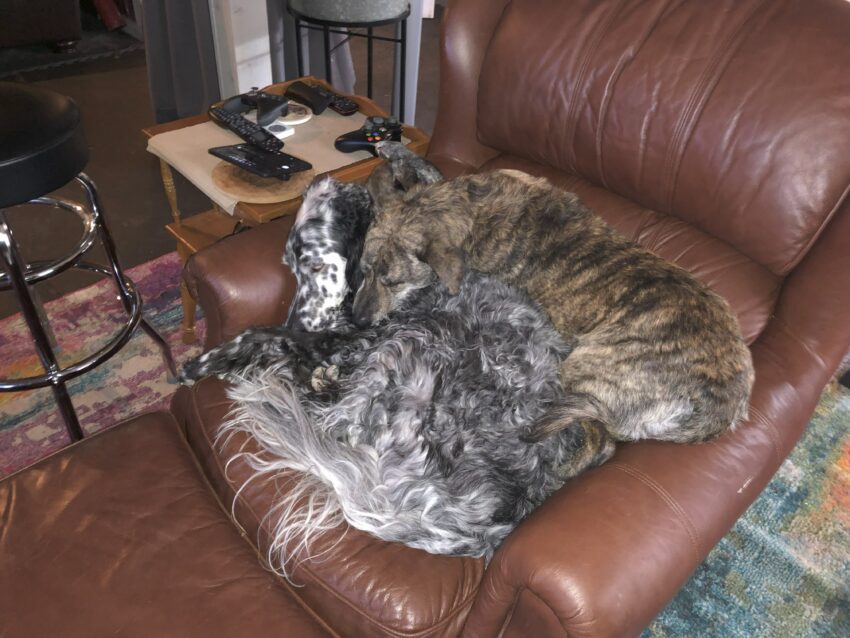An interesting topic that I have seen very little written about is how to love again. We inevitably want to love and be loved. It is human nature, narcissists excluded. How long does it take to recover? When is it OK to date again? Should I share my story with my new partner? Can I ever trust somebody again? How do I avoid another narcissistic relationship?
These are all good questions, all of which I have pondered as part of my recovery. I don’t profess to be an expert on the topic, but here are some things that I considered while on my journey:
The First Step…
Without question, the first step in the process is ensuring a healthy new you. Without a healthy new you, physically and emotionally, you are in no position to be in a new relationship. Not only will you cause yourself further harm and setbacks, you will also cause harm to the person you are with.
Do You Have a History of Bad Relationships?
If you seem to be a narcissist magnet or have a history of bad relationships, it is time to evaluate yourself. As easy as it is to simply blame the narcissists in your life, you may be enabling the trend due to codependency. I was a codependent and was made aware of that during my marriage counseling and individual therapy. Fortunately, I was able to overcome my codependency. That doesn’t change the fact that I have codependent tendencies. However, I practice excellent self-care and know how to set proper boundaries in my relationships. I learned how to do this as part of marriage counseling. And yes, it did ultimately result in my marriage blowing up as I began to recover from my codependency. If you are a codependent, it is critical that you get assistance with overcoming it before you enter into another relationship. Otherwise, you will be doomed to a repeat narcissistic performance.
The Kubler-Ross Seven Stages of Grief
Recovery from a narcissistic relationship often mirrors that of losing a loved one. To suddenly recognize that you were betrayed and meant nothing to your narcissist is quite the blow to the system. Many of us never experienced the type and severity of the trauma associated with being discarded or finding ourselves having to discard a narcissistic partner. The Kubler-Ross Seven Stages of Grief map out the process of how we typically deal with grief:
- Shock and denial: This is a state of disbelief and numbed feelings.
- Pain and guilt: You may feel that the loss is unbearable and that you’re making other people’s lives harder because of your feelings and needs.
- Anger and bargaining: You may lash out, telling God or a higher power that you’ll do anything they ask if they’ll only grant you relief from these feelings or this situation.
- Depression: This may be a period of isolation and loneliness during which you process and reflect on the loss.
- The upward turn: At this point, the stages of grief, like anger and pain, have died down, and you’re left in a more calm and relaxed state.
- Reconstruction and working through: You can begin to put pieces of your life back together and move forward.
- Acceptance and hope: This is a very gradual acceptance of the new way of life and a feeling of possibility for the future.
Until you have navigated through these stages and are at the stage of “Acceptance and Hope”, you are not ready for a new relationship. This includes reconciling with what occurred and recognizing that there is no guilt or shame for having been caught up in the control and manipulation techniques of a narcissist.
Your Physical Well Being
Hand in hand with your emotional well being is the need to be in a state of physical well being. Does that mean you need to start exercising and working out? No. What it does mean is that you are physically taking good care of yourself. Good nutrition, sleeping patterns, and best practices is what is called for with respect to physical well being. If you need to drop a few pounds, do so. It will make you feel good about yourself and it will also boost your confidence.
The CPTSD Factor
It is not uncommon to have Complex PTSD as a result of being with a narcissist. Unlike PTSD which is a result of a traumatizing event; Complex PTSD is often characterized by prolonged or repeated trauma. This aligns with the behaviors of narcissists with their victims. This prolonged trauma can often be over a period of years. For me, that was seventeen years as I fully recognize that the control and manipulation started on day one. It is worthwhile to educate yourself and potentially be evaluated for CPTSD.
Why?
Because untreated CPTSD can derail your future relationships due to triggers. I was previously diagnosed with CPTSD and underwent 18 months of EMDR (Eye Movement Desensitization & Reprocessing) to help me deal with it. It was a life changing experience for me, allowing me to recognize triggers and reprocess them quickly and efficiently.
How Long Before Venturing Out Into The World?
To be honest, there is no magic rule of thumb as to how long you should wait before dating again. Recovery from a narcissistic relationship varies widely from person to person. For me, I was preparing for what may occur with my marriage to a narcissist as far back as 2018. I wanted to try and see the success of my marriage but at the same time was preparing for the worst. When that “worst” hit in July of 2024, I was able to process what had occurred and immediately start my recovery efforts. Others that I have come to know were completely blindsided by their narcissist, including a lack of awareness that they were even with a narcissist. As such, recovery times can truly vary. Rather than focus on a finite timeline, it is better to focus on the healthy new you. However long it takes is however long it takes.
I Met Somebody. Now What?
Good for you! That is very exciting. However, there is still work to be done!
Don’t Over Analyze
As much as you can prepare to be dating again; actual dating is another animal. Be on the lookout for believing that everyone is a narcissist. They aren’t. In fact, the percentage of actual narcissists is quite low. However, it is easy to be hypervigilant; looking for the slightest sign of narcissism. Just remember, many of the things that narcissists do to lure you in are identical to what a normal person would do. So don’t jump to conclusions. By now, you should be well educated in what to look for and how to spot those red flags.
Be Open & Transparent
As difficult as it may be to discuss, it is important that your new relationship partner understand that you have had a very traumatic relationship experience. That isn’t to say you have to advertise it, nor have it as your opening greeting, but it is important to address it at the appropriate time and place. It is especially important if you believe things will progress. It is especially important if you are diagnosed with CPTSD. With such a diagnosis, you don’t always know what may trigger you. When triggered, you will only see things through the lens of your CPTSD. Triggers are more prone to happen in a new relationship and can occur by a simple innocent comment that brings you right back to your narcissistic past. By addressing this early on, you can not only avoid a very uncomfortable situation, but also help your partner know what to do if a trigger should occur.
Reality is that we are “damaged goods.” That doesn’t make us bad people and incapable of giving and receiving love. It just means that we may need some additional time, understanding, and patience to get where we are fully comfortable in our new relationship.
Take It One Day At a Time
Being in a new relationship can be a wonderful thing. Take the time to smell the flowers along the way. Develop your relationship with a solid foundation. Companionship and friendship go a long way into developing your relationship into something unique and special for you and your new partner.
One Last Thought
You will note that I didn’t cover how to meet people. As much as online dating is fairly common, it also provides a breeding ground for narcissists seeking out victims. Be aware and be safe.
I personally recommend meeting somebody by joining or participating in groups that align with your interests. This can be local or online. The point being that the focus then isn’t about dating. It becomes more about what you like to do. It is far better to find somebody that has common interests than it is to focus on the dating experience. From there, let nature take its course.

